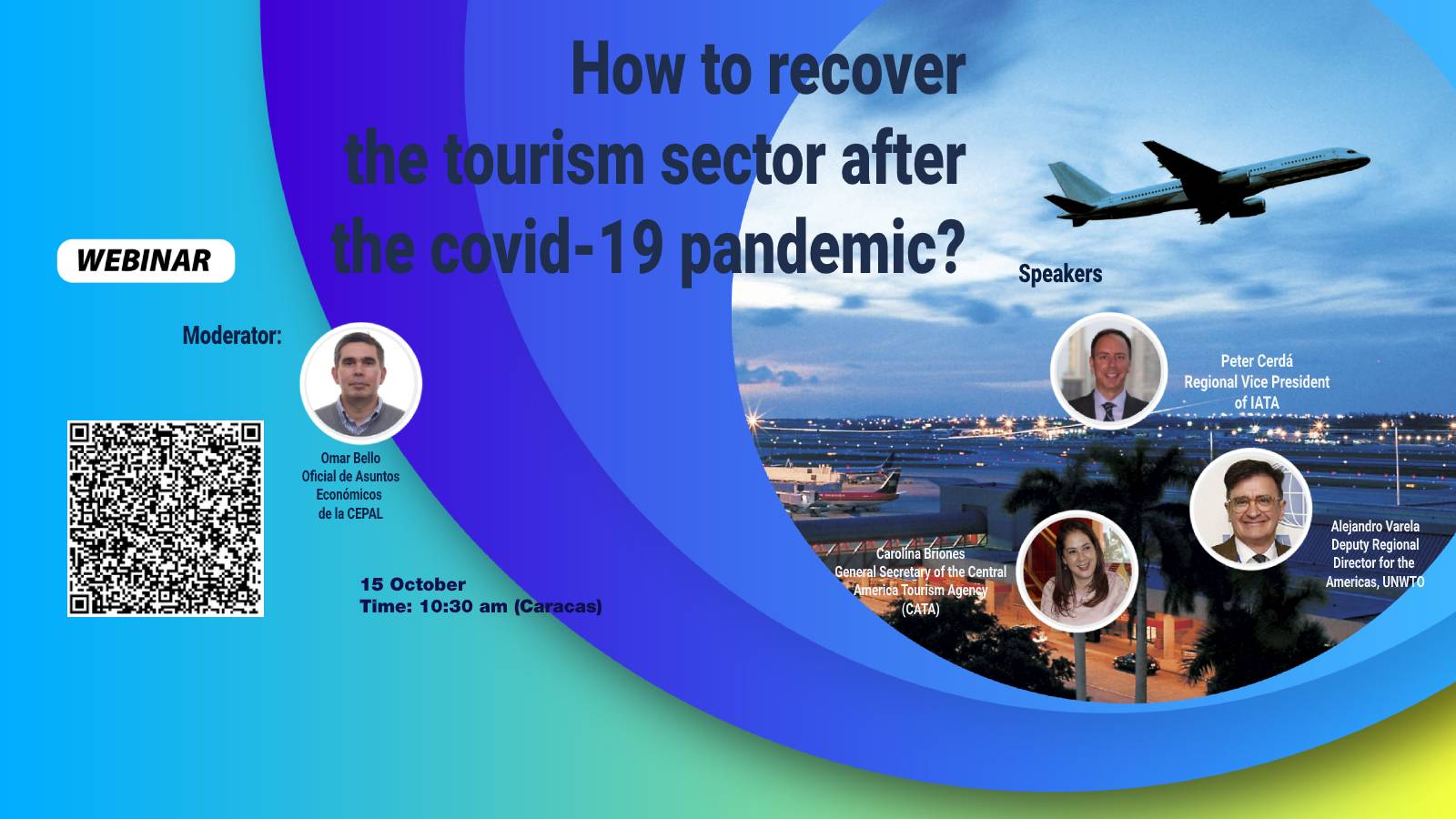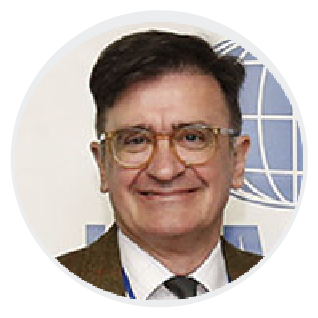

The Latin American and Caribbean (LAC) region has immense tourism potential based on its environmental resources, its natural and sociocultural, as well as one of the greatest biodiversity on the planet, characteristics that promote it as a place to visit. These are resources that many of its countries have used in the productive transformation of their economies and development strategies when designing their public policies.
The tourism industry has been a driving force for growth in Latin America. It generates employment, improves the quality of life of peoples by promoting their well-being, and therefore contributes to the eradication of poverty. Thanks to it, many LAC countries promote sustained and inclusive economic development, full and productive employment, as well as a commitment to the sustainable use of their maritime and terrestrial ecosystems.
For recipient countries, tourist activity has many advantages. First of all, it is a source of currency that helps their balance of payments. Moreover, they cover different areas they often mean a source of income from which much of the population benefits; and it is an industry that does not need much time to be developed and usually bears fruit immediately.
Such a reality has been severely affected by the adverse effects caused by the COVID-19 pandemic. Tourism has virtually been paralyzed globally, causing serious economic consequences in the hotel industry, airlines, transport companies, restaurants and accommodation services, among others. As a result, the region’s development processes have been seriously compromised, particularly the tourism sector, a vital source of resources especially for Caribbean countries.
The threat to the tourism sector is serious. Not only the incomes of workers and companies in the sector are affected, but also the national foreign exchange income and external account balances, with the situation being particularly difficult for small countries specializing in the sector, and serious implications for their Gross Domestic Product.
Aside from being an area affected by the global economic downturn in 2020 due to the COVID-19 impact, tourism must face border closures, restrictions on people’s mobility, a slow full-fledged restoration of international transit of people and goods, and voluntary isolation of a large number of people. All of this seems to indicate that recovery is likely to take longer than desired.
Also, the economic activity derived from tourism can have a high impact on the environment. In addition to encouraging greater promotion of tourist destinations, sustainable development of the region should be encouraged by safeguarding the environment. In this connection, ecotourism is proposed as a new way of continuing tourism activities as a source of resources, while raising awareness of the need and importance of conserving the environment for future generations.
Sustainable tourism recognizes that the protection and improvement of local resources, respect for the human factor and proper management must be at the heart of economic and environmental sustainability and development, as indicated by the Charter for Sustainable Tourism (1995). Special attention should be paid to the new climate change perspectives and the concerns and direct effects, mainly on the coasts and islands.
Undoubtedly, the economic activity of tourism is a factor that contributes to fulfil the sustainable development goals and objectives set out in the 2030 Agenda, as agreed by the United Nations (UN) in 2015. These objectives include (i) ensure sustainable consumption and production; (ii) take urgent action to combat climate change; (iii) guarantee the conservation and sustainably use of oceans, seas and marine resources; and (iv) promote the sustainable use of Terrestrial Ecosystems.
However, such scenario requires contingency plans to promote a responsible recovery of the sector of tourism as soon as sanitary conditions permit. Measures are needed to alleviate the situation in the sector, either through the conclusion of international agreements, or by encouraging greater promotion of tourist destinations in the countries of the region, or by promoting an environmental preservation and conservation scheme.
The revival of tourism activity is an urgent issue to address. The economies of many LAC countries depend on this source of resources. With this virtual seminar, SELA hopes to contribute to the reflection and exchange of constructive ideas on possible solutions for the recovery of the tourism industry in the region in the short and medium term, including perhaps an exchange of experiences and best practices with other more regions that have made progress on the subject.
This meeting also provides an opportunity to raise awareness among policy-makers that the measures to be taken should highlight the need and importance of preserving the environment for future generations, and promote a form of tourism in which good environmental conservation practices are implemented.
With this initiative, the Permanent Secretariat aims to open up a space for the generation of discussions and debates in the search for solutions for the hotel industry, with the public and private sectors contributing their viewpoints, so as to expand the scope of responses to the crisis caused by COVID-19, with the ultimate purpose of achieving well-being of the communities.
Panellists will address the current Latin American and Caribbean tourism activity by underscoring, from their knowledge of the field, the actions that should be taken for an early recovery of the tourism sector while taking into account the postulates of the 2030 Agenda, and thus contribute to mitigate the effects of COVID-19 on the economic and social development of the region.
Opening session
| 10:30 – 10:40 | Speech by Ambassador Javier Paulinich, Permanent Secretary of the Latin American and Caribbean Economic System (SELA) |
| 10: 40 – 11:40 | Presentations and dialogue with speakers:
Moderator: Omar Bello, Oficial de Asuntos Económicos de la CEPAL |
| 11:40 – 12:00 | Questions and answers / Comments |

Omar Bello
Omar Bello is a Magna Cum Laude Economist at the Central University of Venezuela and a Doctor of Economics at the University of Colorado (1999). From 1999 to 2005, he worked as an official of the Central Bank of Venezuela. Since 2005, he has been an official of United Nations’ ECLAC where he has worked in the Economic Development, Sustainable Development Divisions and the Caribbean Subregional Office. At present, he works in the Office of the Secretariat of the Commission.
Since 2010, he has specialized in disasters. His most prominent achievements in this area have been: 1. Coordination of the Third Edition of ECLAC’s Methodology for Disaster Assessment, which includes a chapter on epidemic assessment; 2. Coordination of twelve disaster assessment reports, with the last one being Hurricane Dorian in the Bahamas. All these reports estimated the effects of such disasters on the tourism sector; and 3. He has led more than 40 face-to-face courses on this methodology.
He is also an Official of Economic Affairs at the Secretariat of ECLAC, United Nations.

Peter Cerdá
Peter Cerdá is the Regional Vice President of IATA – The International Air Transport Association for the Americas region, whose 290 airlines carry more than 82% of the world’s air traffic.
Based in Miami, Mr. Cerdá leads the regional organization, which defends the priorities of the airline industry to government authorities, airports and suppliers make air transport safer, more reliable and the indispensable network that drives about US$ 958 billion in GDP and generates 12.8 million jobs in the Americas. Its scope of responsibility extends from North to South America with a large local presence in more than 25 countries in the region.
He is a member of IATA’s strategic leadership team, which establishes IATA’s strategic direction. Mr. Cerdá is also IATA’s main shareholder for the services of Cargo Network Services (CNS) and the International Airlines Travel Agent Network (IATAN).
Peter has extensive experience in the industry gained during more than 27 years in aviation. He has also worked in various IATA posts and recently served as Regional Director for Security, Operations and Infrastructure in the Americas and the Atlantic until 2013.
Prior to joining the IATA team in 1996, Mr. Cerdá began his aviation career at Iberia.
Fluent in English and Spanish, Mr. Cerdá was born in Spain and received his master’s degree in Aeronautics and Aeronautical Management from the Embry Riddle University, and a bachelor’s degree in business administration from Florida.

Alejandro Varela
Born in Buenos Aires, Argentina in 1959. Varela studied at the Universidad del Salvador where he graduated as a Public Translator in English and later on, he completed his Master’s Degree in Regional Integration Schemes with an emphasis on MERCOSUR at the University of Buenos Aires.
Varela has worked in the tourism sector for more than twenty years. In 1987, he joined the International Relations area where he devoted himself to multilateral negotiations and international cooperation.
Since June 2009, he has held the position of Deputy Regional Director for the Americas at the World Tourism Organization, a specialized agency of the United Nations.

Carolina Briones
Carolina Briones Pereyra is a graduate of the Tourism Career with a specialty in Tourism Administration from the Kleissham Institute, Salzburg, Austria. Her experience in tourism has focused on marketing, performing important work with the private-public tourism sector, which has allowed her to specialize herself in the development of promotion and marketing strategies.
She created one of the first tourist marketing companies in Nicaragua, and has held important positions as director in the areas of marketing and promotion. At present, she serves as General Secretary of the Central America Tourism Agency (CATA). Central American Tourism Promotion Agency CATA and has implemented the multi-target product positioning strategy in European markets as one of the main challenges in the region.
